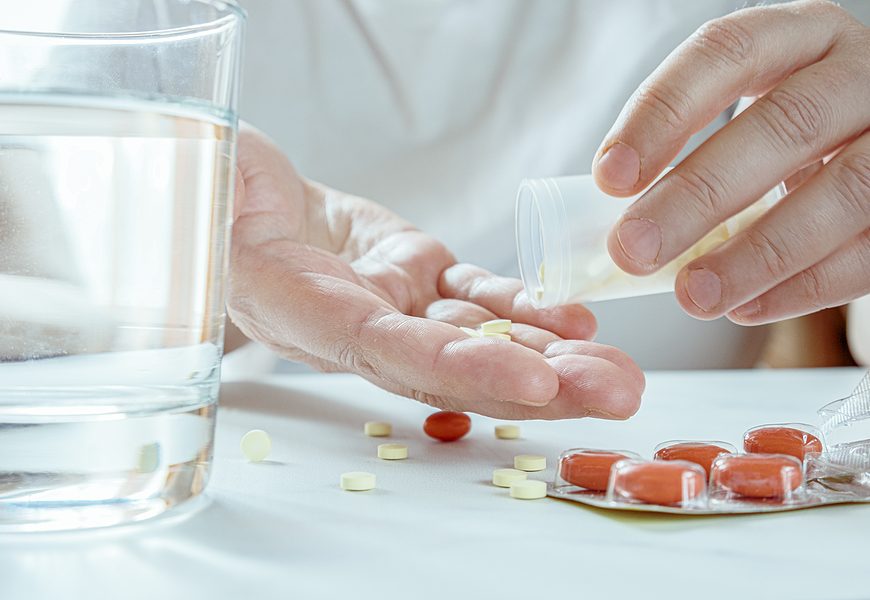Drug allergies can cause serious reactions and affect your health in various ways. A drug allergy occurs when your immune system mistakenly identifies a medication as harmful and overreacts. It’s important to understand the symptoms, causes, and risks associated with drug allergies, as well as the available drug allergy treatment options. If you experience an allergic reaction to medication, knowing how to respond quickly can help prevent severe complications and protect your health.
1. What Is a Drug Allergy?
A drug allergy is an abnormal response by the body’s immune system to a medication. Unlike side effects, which are expected responses to drugs, an allergy involves the immune system mistakenly attacking a harmless substance. When you take a medication, your body identifies it as an invader and produces antibodies to fight it. This can lead to symptoms ranging from mild rashes to more severe reactions, including anaphylaxis.
2. Common Symptoms of Drug Allergies
The symptoms of a drug allergy can vary depending on the individual and the medication. Common signs include:
- Skin reactions, such as rashes, hives, or itching
- Swelling of the face, lips, or tongue
- Difficulty breathing or wheezing
- Nausea, vomiting, or diarrhea
- Fever or joint pain
In some cases, a drug allergy can lead to more severe reactions like anaphylaxis, a life-threatening condition that requires immediate medical attention.
3. Common Drugs That Cause Allergic Reactions
Almost any medication has the potential to cause an allergic reaction, but certain drugs are more commonly associated with allergies. Some of the most common culprits include:
- Antibiotics: Penicillin and sulfa drugs are frequent offenders.
- Pain relievers: Nonsteroidal anti-inflammatory drugs (NSAIDs), such as ibuprofen, can trigger allergic reactions in some individuals.
- Chemotherapy drugs: Some cancer treatments are known to cause allergic responses.
- Anesthetics: Local and general anesthetics can cause allergic reactions, although this is rare.
It’s important to inform your healthcare provider about any history of drug allergies to avoid dangerous interactions.
4. Risk Factors for Drug Allergies
Certain factors increase your likelihood of developing a drug allergy. These include:
- Previous allergic reactions: If you’ve had an allergic reaction to a drug in the past, you’re more likely to develop another one in the future.
- Family history: A family history of allergies, including drug allergies, can increase your risk.
- Multiple medications: Taking multiple medications increases the likelihood of a drug interaction that could trigger an allergy.
- Age and gender: Women and older adults are sometimes at higher risk for drug allergies.
Being aware of these factors can help you manage your risks and take preventive steps with your healthcare provider.
5. How Are Drug Allergies Diagnosed?
Diagnosing a drug allergy can be challenging, as symptoms often mimic those of other conditions. Your doctor will typically conduct a thorough medical history review and may recommend:
- Skin tests: In some cases, skin testing can identify which drugs may cause an allergic reaction.
- Blood tests: Blood tests can help measure the body’s immune response to specific medications.
- Drug challenge tests: In controlled environments, doctors may administer small doses of the drug to observe any allergic response.
It’s important to avoid self-diagnosis and seek professional medical advice when suspecting a drug allergy.
6. Treatment for Drug Allergies
The primary goal of drug allergy treatment is to alleviate symptoms and prevent future reactions. Here are some common approaches:
- Discontinuing the drug: The most important step is stopping the use of the drug causing the allergic reaction.
- Antihistamines: These medications help relieve symptoms like itching and hives.
- Corticosteroids: These can reduce inflammation and swelling caused by the allergy.
- Epinephrine: For severe reactions like anaphylaxis, an epinephrine injection is often required to counteract the effects.
In some cases, desensitization therapy may be used to help the body build tolerance to specific medications, particularly in cases of life-saving treatments like chemotherapy.
7. Preventing Drug Allergies
While not all drug allergies can be prevented, there are steps you can take to minimize your risk:
- Inform your healthcare provider: Always tell your doctor about any previous drug allergies or reactions.
- Read labels: Pay attention to the ingredients in medications to avoid any substances you are allergic to.
- Avoid self-medication: Never take medication without a prescription, as this can increase the risk of an allergic reaction.
By taking these precautions, you can lower the chances of experiencing an allergic reaction to medication.
8. When to Seek Immediate Medical Help
If you suspect a drug allergy, especially if you experience symptoms like swelling of the throat, trouble breathing, or dizziness, seek immediate medical attention. Anaphylaxis can progress quickly, and early intervention with medications like epinephrine is essential to saving lives.
Final Thoughts
Understanding drug allergies and their risks is crucial for your health and safety. With proper diagnosis, management, and treatment, many allergic reactions to drugs can be controlled or prevented. If you believe you’ve experienced a drug allergy, consult with a healthcare provider to discuss potential treatments, including drug allergy treatment options. By staying informed and taking precautions, you can protect yourself from harmful allergic reactions and ensure your medication regimen is safe.









